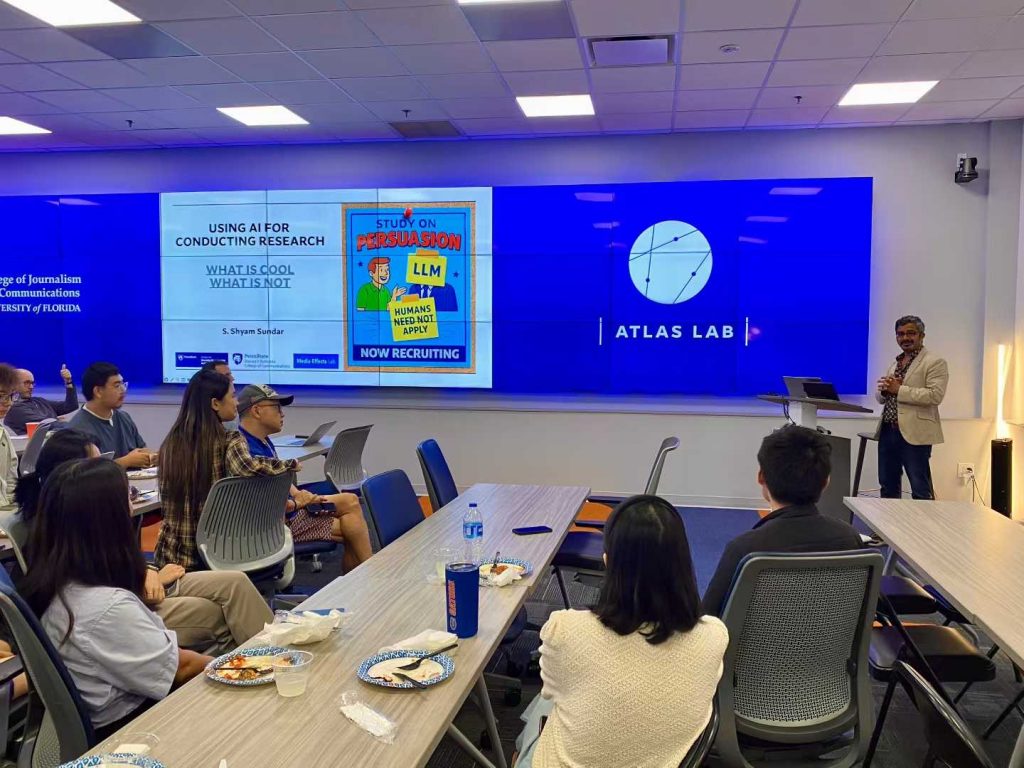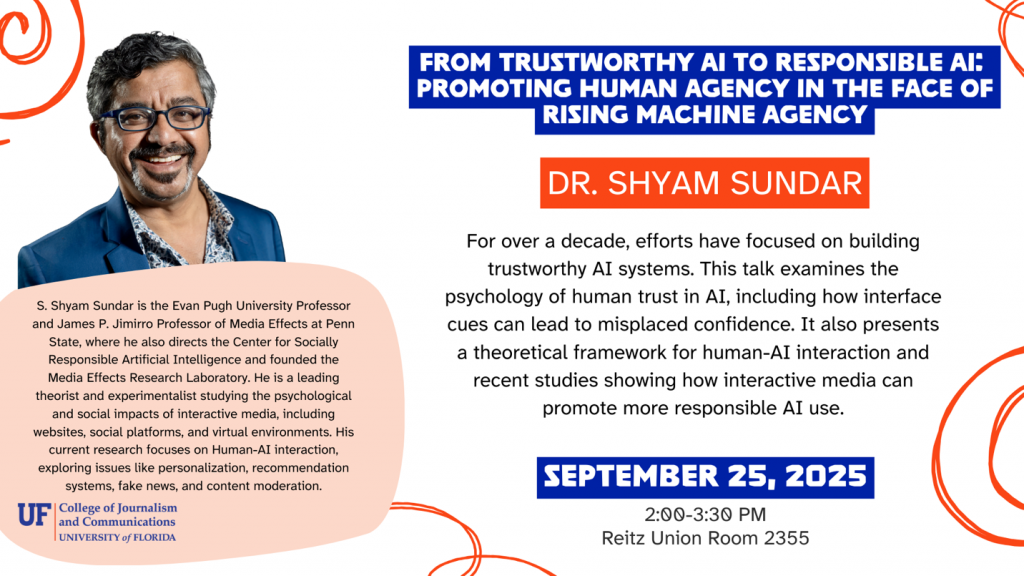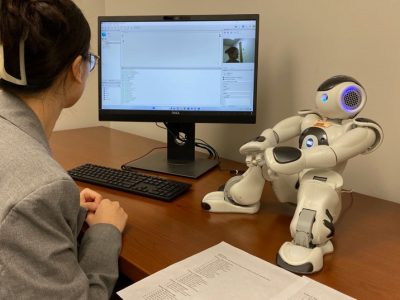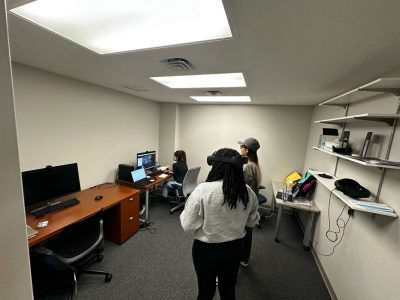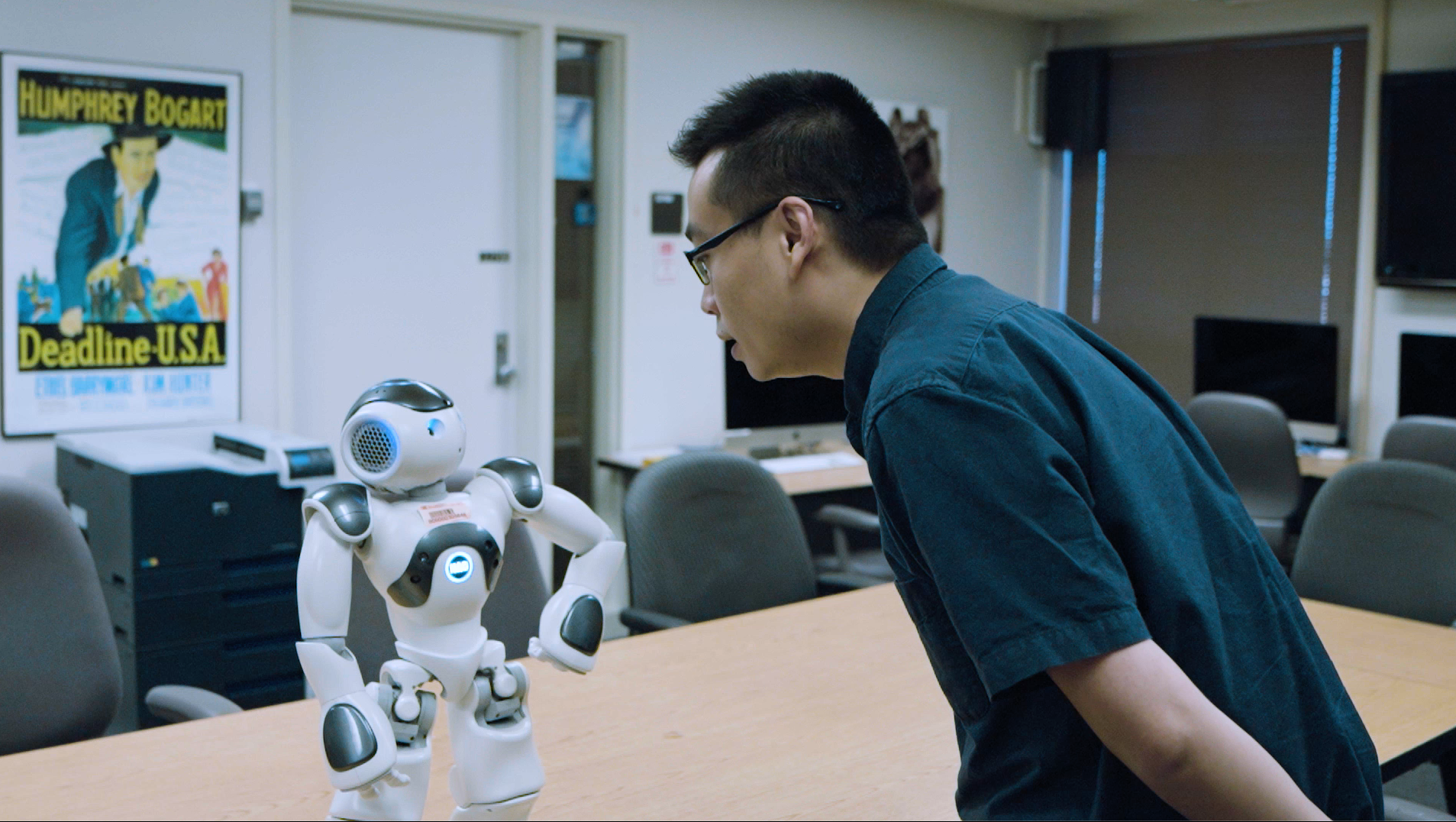About the Media Effects & Technology Lab (METL)
The Media Effects & Technology Lab (METL), directed by Dr. Kun Xu, explores the psychological and social dynamics of AI-based technologies, including humanoid social robots, virtual humans, and augmented agents.

Focused on topics in human-machine communication, human-robot interaction, VR, AR, and psychological processing, Dr. Xu’s research group (also known as the PAI Lab) employs a range of methods and analyses, including lab experiments, structural equation modeling, multilevel modeling, interviews, semiotics, meta-analysis, computational methods, and geographic information systems.
Dr. Xu’s lead-authored work has been published in journals such as Communication Theory, Journal of Computer-Mediated Communication, New Media & Society, Human-Machine Communication, and International Journal of Social Robotics. His work on the Media Are Social Actors paradigm received the 2022 Denis McQuail Award for the best article advancing communication theory in the previous two years. Recently, he received the Klein-Carnell Rising Scholar Award from Temple University. Dr. Xu was also recognized among the Stanford/Elsevier World’s Top 2% Scientists in 2024 and 2025.
Updates and Events
September 2025
The METL invited Shyam Sundar, Ph.D. to deliver two talks
- September 25: “From Trustworthy AI to Responsible AI: Promoting Human Agency in the face of Rising Machine Agency”
- September 26: “Using AI for Conducting Research: What is Cool, What is Not”
S. Shyam Sundar (Ph.D., Stanford University) is Evan Pugh University Professor and James P. Jimirro Professor of Media Effects and Director of the Center for Socially Responsible Artificial Intelligence (CSRAI) at Penn State University. He is also the founding director of the Media Effects Research Laboratory at Penn State University’s College of Communications. Prof. Sundar is a theorist as well as an experimentalist who uses a variety of quantitative and qualitative approaches in his research. His research examines social and psychological effects of interactive media, ranging from websites and social media to virtual assistants and virtual environments. Specifically, his experiments investigate the role played by technological affordances in shaping user experience of mediated communications. Current research pertains to psychological effects of Human-AI interaction in a variety of contexts, ranging from personalization and recommendation to fake news and content moderation. He edited the Handbook of the Psychology of Communication Technology (2015) and served as editor of the Journal of Computer-Mediated Communication (2013-2017).
June 2025
The CJC Research Lab and the Media Effects & Technology Lab sponsored the Human-Machine Communication Pre-conference at the annual conference of the International Communication Association in Denver, USA.
May 2025
The CJC Research Lab and the Media Effects & Technology Lab sponsored the Meaningful XR conference held at the University of California, Davis. Previously, the College of Journalism and Communications sponsored the inaugural Meaningful XR conference at Stanford University in 2024.
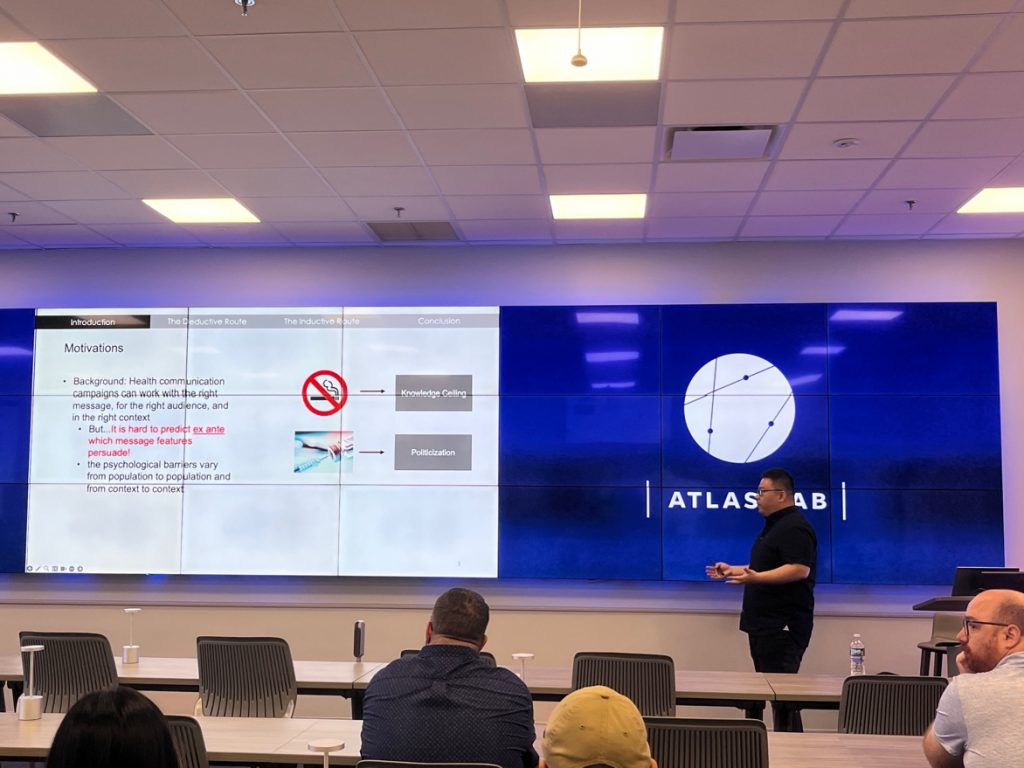
The METL invited Dr. Sijia Yang, Associate Professor at the University of Wisconsin-Madison, to deliver a talk on “Persuasive AI: How multimodal large language models (MLLM) improve the design and evaluation of digital health messages.”
Dr. Sijia Yang is an Associate Professor in the School of Journalism and Mass Communication at the University of Wisconsin-Madison, where he directs the Computational Approaches and Message Effects Research (CAMER) group and serves as Associate Director of the Mass Communication Research Center. He received his Ph.D. from the Annenberg School for Communication at the University of Pennsylvania in 2019.
Dr. Yang’s research applies computational and experimental methods to study persuasive messaging and communication effects on digital media, with particular focus on public health contexts including tobacco control, substance abuse prevention, and vaccine promotion. His innovative work integrates artificial intelligence, computational communication science, and community-engaged approaches to develop effective health communication interventions. His research has been published in top-tier communication journals such as Journal of Communication, Human Communication Research, and Journal of Computer-Mediated Communication, as well as leading public health and medical journals including Social Science & Medicine, Preventive Medicine, Drug and Alcohol Dependence, Journal of Medical Internet Research, and Journal of the American Medical Informatics Association.
April 2025
The METL invited Jacklyn Sehr and Jessica Wilson from iMotions for a full-day training on the topics of galvanic skin responses, biosensors, eye tracking, and facial expression analysis.

